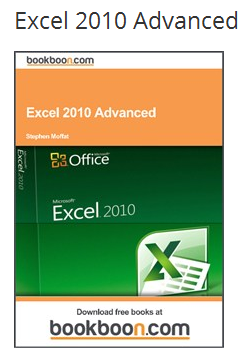Advanced Mathematics Brown Pdf To Excel
How to Learn Advanced Mathematics Without Heading to University - Part 1. Often in PDF format, typeset in LaTeX or similar. Where appropriate. How to Learn Advanced Mathematics Without Heading to University - Part 1. Often in PDF format, typeset in LaTeX or similar. Where appropriate. Brown, Andrew M. Gleason, Martha A. Brown No preview available - 1993. Advanced Mathematics. McDougal Littell Advanced Math Series: Author: Richard G. We have made sure that you find the PDF Ebooks without unnecessary research. And, having access to our ebooks, you can read Excel Study Guide Advanced.


I am often asked in emails how to go about learning the necessary mathematics for getting a job in quantitative finance or data science if it isn't possible to head to university. This article is a response to such emails. I want to discuss how you can become a mathematical using nothing but a range of relatively reasonably priced textbooks and resources on the internet. While it is far from easy to sustain the necessary effort to achieve such a task outside of a formal setting, it is possible with the resources (both paid and free) that are now available.
The Amazing Spider Man Game Rhino Dlccc there. We'll begin by discussing the reasons for wanting to learn advanced mathematics, be it career-driven, to gain entrance into formal education or even as a hobby. We'll then outline the time commitment required for each stage of the process, from junior highschool (UK GCSE equivalent) through to postgraduate/research level work. I will then present the different study materials available for the equivalent of an undergraduate course, how to access them and how to make the best use of them. Finally, I will describe a mathematical syllabus that takes you all the way through a modern four-year Masters-level UK-style undergraduate course in mathematics, as applicable mainly to quantitative finance, data science or scientific software development. In this particular article we will consider the first year of an undergraduate course. The remaining articles will each discuss subsequent years. Why Are You Wanting To Learn Mathematics?
The first question to ask yourself is why you want to learn mathematics in the first place. It is an extremely serious undertaking and requires substantial long-term commitment over a number of years, so it is absolutely imperative that there is a strong underlying motivation, otherwise it is unlikely that you will stick with self-study over the long term. For the majority of you on this site, it is because you wish to gain employment and/or further formal study in the field of quantitative finance, data science or scientific software development.
You might be an individual at the beginning of your educational career, deciding whether to take a formal university program in mathematics. You might have worked in a technical industry for 10-15 years, but seek a new role and wish to understand the necessary prerequisite material for the career change. You might also enjoy studying in your own time but lack a structured approach and want a reasonably linear path to follow. One of the primary reasons for wanting to learn advanced mathematics is to become a 'quant'. However, if your sole reason for wanting to learn these topics is to get a job in the sector, particularly in an investment bank or quantitative hedge fund, I would strongly advise you to carry out mathematics in a formal setting (i.e.
At university). This is not because self-study will be any less valuable or teach you less than in a formal setting, but because the credential from a is, unfortunately, what often counts in getting interviews, at least for those early in their career. An alternative reason for learning mathematics is because you wish to gain a deeper understanding of how the universe works. Mathematics is ultimately about formalising systems and understanding space, shape and structure. It is the 'language of nature' and is utilised heavily in all of the quantitative sciences.
It is also fascinating in its own right. If you are heavily interested in learning more about deeper areas of mathematics, but lack the ability to carry it out in a formal setting, this article series will help you gain the necessary mathematical maturity, if you are willing to put in the effort. The Commitment I want to emphasise that studying mathematics from the level of a junior highschooler to postgraduate level (if desired) will require a huge commitment in time, likely on the order of 10-15 years. Clearly this is a staggering commitment to undertake and, without a strong study-plan, will likely not be completed due to the simple fact that 'life often gets in the way'. However, chances are if you are considering studying advanced mathematics you will already have formal qualifications in the basics, particularly the mathematics learnt in junior and senior highschool (GCSE and A-Level for those of us in the UK!).